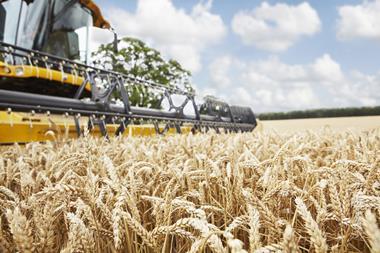The Federation of Bakers (FoB) said there was no sign that the Department for Environment, Food and Rural Affairs (Defra) could exempt fortified flour from EU Food Information Regulation labelling rules, despite a new consultation.
Defra is to start a consultation before the summer recess on a change to the Regulation where flour is used in a small amount as an ingredient.
This consultation will look specifically at the labelling of the added nutrients, when flour is used as a minor component in food.
Defra said it came about as industry representatives of the milling and cereal industry had complained that British companies were experiencing a loss of business to European competitors, which are not required to fortify flour.
FoB director Gordon Polson told British Baker that the baking industry was already getting prepared for the EU Food Information Regulation labelling regime, set to come into force in December this year.
He said: “Bakers have already started introducing the new labels, so that everything is pucker by the end of the year when the Regulation comes into force. These are good nutrients in the bread.”
He dismissed industry speculation that companies might start importing wheat from Canada to avoid having to list fortified ingredients on labels.
He said: “The labelling regulations apply from where the wheat is milled, not grown. Those that import Canadian wheat mill it in the UK anyway.”
Bread and Flour Regulations 1998 state that calcium, iron, thiamine and niacin must be added to wheat flour.
This has led to fears within the industry that, when the new EU Regulations come into effect in December, the ingredients list for bread will read “like a chemistry set”.
A spokeswoman for Campden BRI said fortified flour was exempt from the 1996 Food Labelling Regulations, and the fortified ingredients were not listed on labels.
Domestic regulation
She commented: “Any provision to exempt flour from the new FIR regime would depend on domestic regulation.”
A study by Campden BRI for Defra recently suggested that the cost of revising labels was £3,260 on average per SKU.
The Food Information to Consumers Regulation, set to come into effect on December 13, set out strict rules on labelling, covering font size, allergens, ingredients and country of origin.
































No comments yet